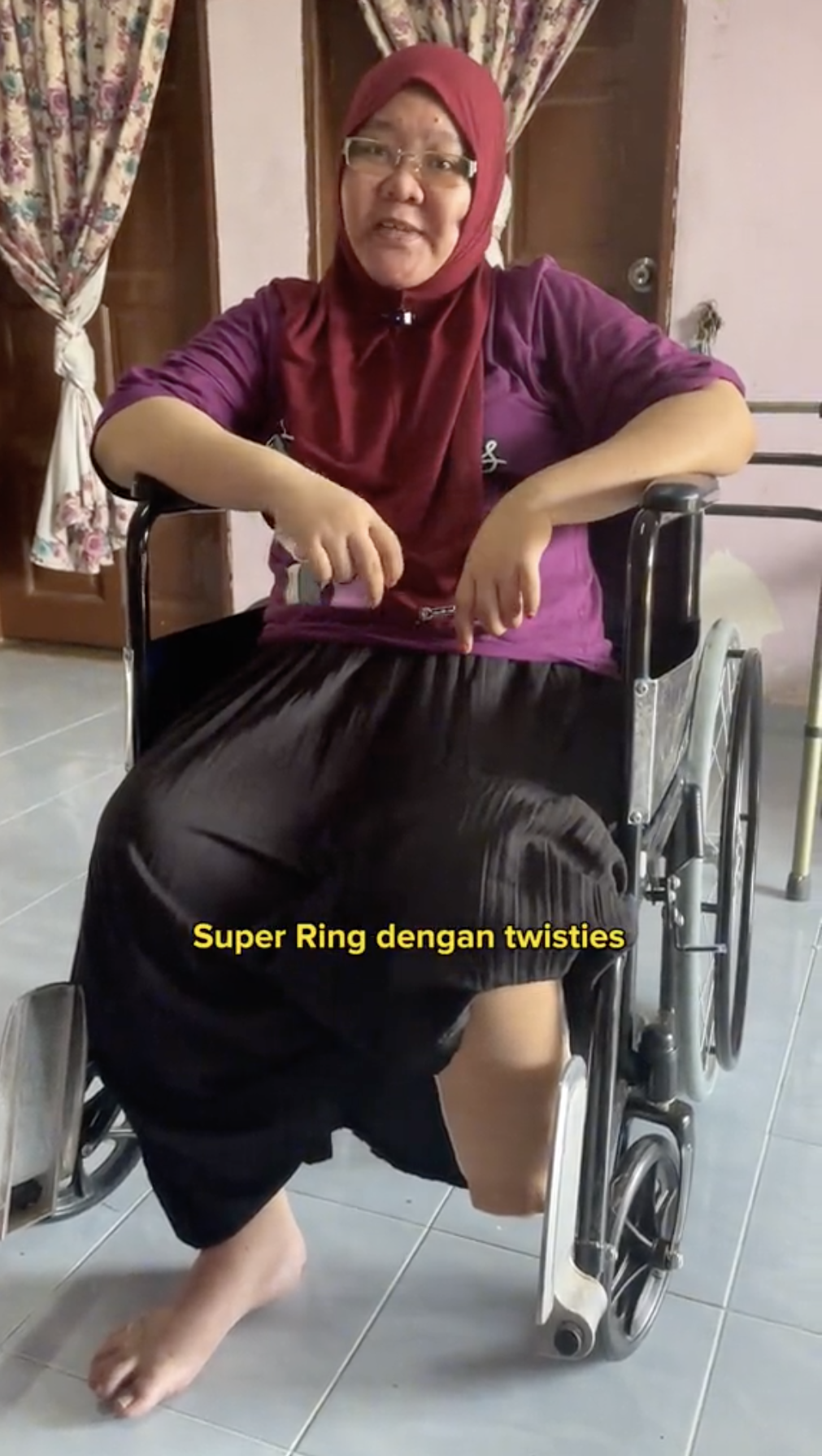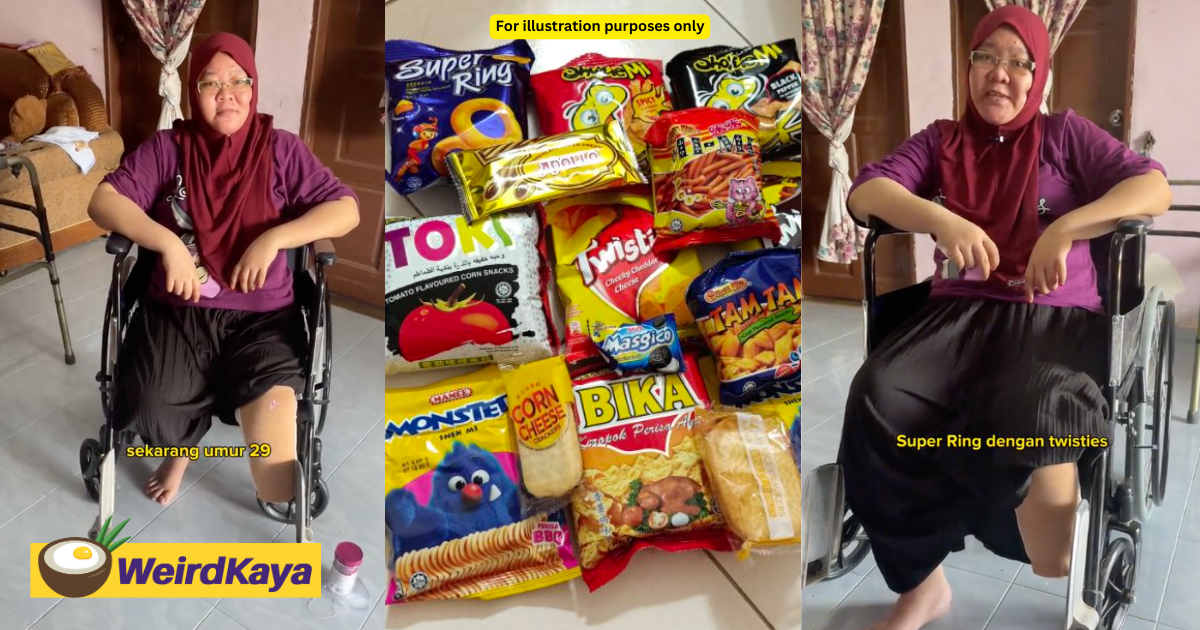In a poignant reminder of the long-term consequences of dietary habits, a young woman’s life has been dramatically transformed by diabetes, a condition she was diagnosed with before the age of 20.
Her story sheds light on the importance of mindful eating and its impact on future health.
In a video shared by a TikTok account featuring amputees, @kedidi_kakipalsu, Muslihah shared her journey of battling diabetes, ultimately leading her to an amputation and a wheelchair-bound existence.
Diagnosed with Diabetes during PLKN Check-up
The 29-year-old was diagnosed with diabetes during a medical check-up before she participated in the National Service Program (PLKN).
She mentioned that she had no prior knowledge of having diabetes before the check-up.

The doctors told me to start taking medication and that I also had to inject insulin.
They also advised her not to join the National Service Program because she wouldn’t be able to stick to meal timings, which would result in missing medication times.
Had Too Much Junk Food
In the clip, Muslihah explained that aside from genetic factors, she believed that her diabetes was a result of her habit of consuming unhealthy snacks since childhood.
Perhaps when I was in school, I consumed too many snacks, like Super Ring and Twisties, coupled with the genetic factors.

Tragically, two years ago, Muslihah underwent an amputation of her left foot due to the worsening condition.
This unforeseen turn of events forced her into a wheelchair and initiated a journey of adaptation to prosthetic limb usage for basic mobility.
Control Sugar Intake
The woman’s experience sparked discussions among internet users and served as a reminder that people of all ages must control their sugar intake.
“Diabetes isn’t something that happens because of what you ate yesterday. It’s a result of dietary habits we develop from a young age.”

“Sometimes not consuming snacks or sugary drinks can also lead to diabetes. It’s common to see people consuming a lot of sweet pastries, rice, bread, and other high-carbohydrate foods, which can also lead to diabetes.”


Read more:



